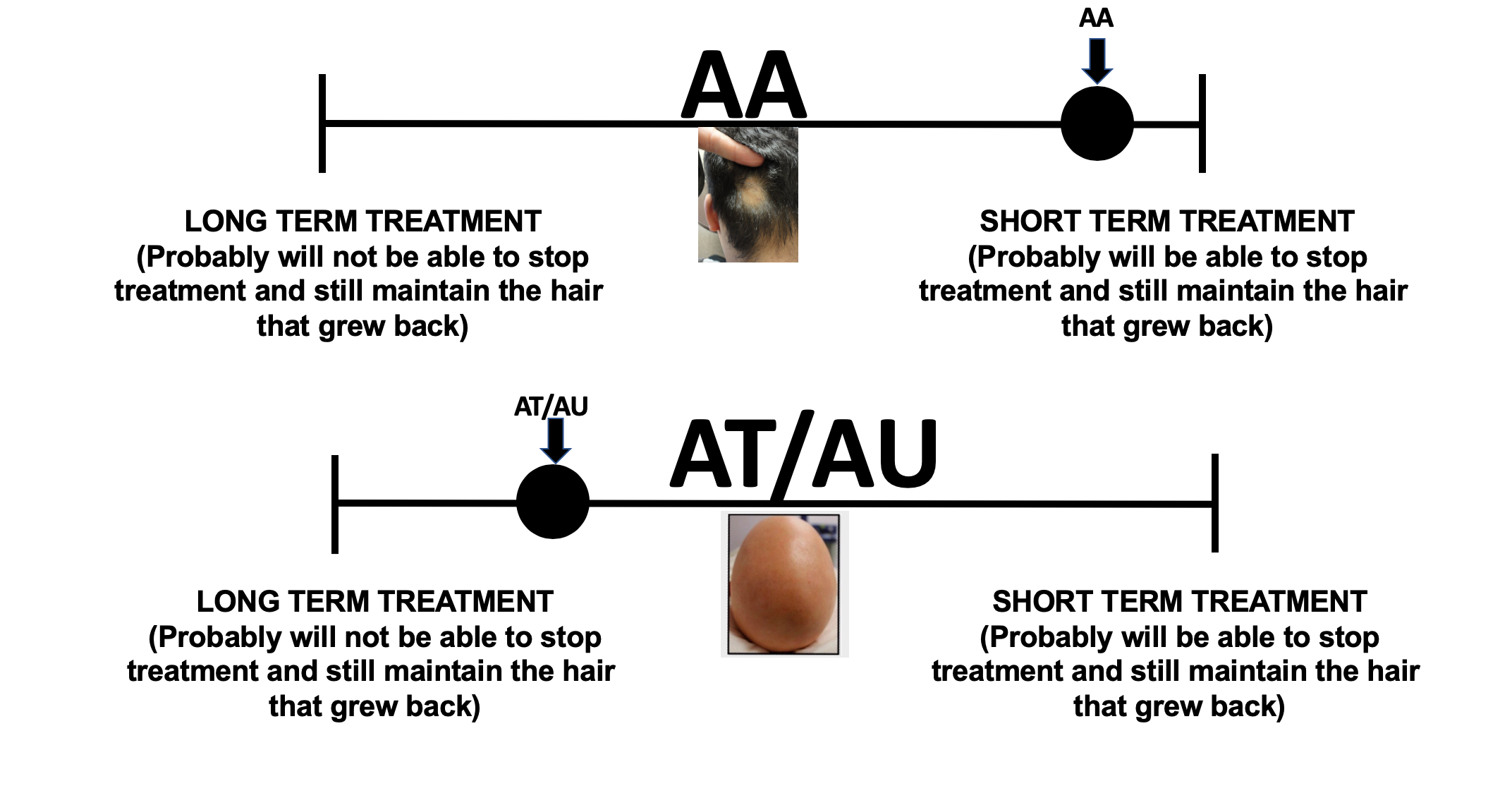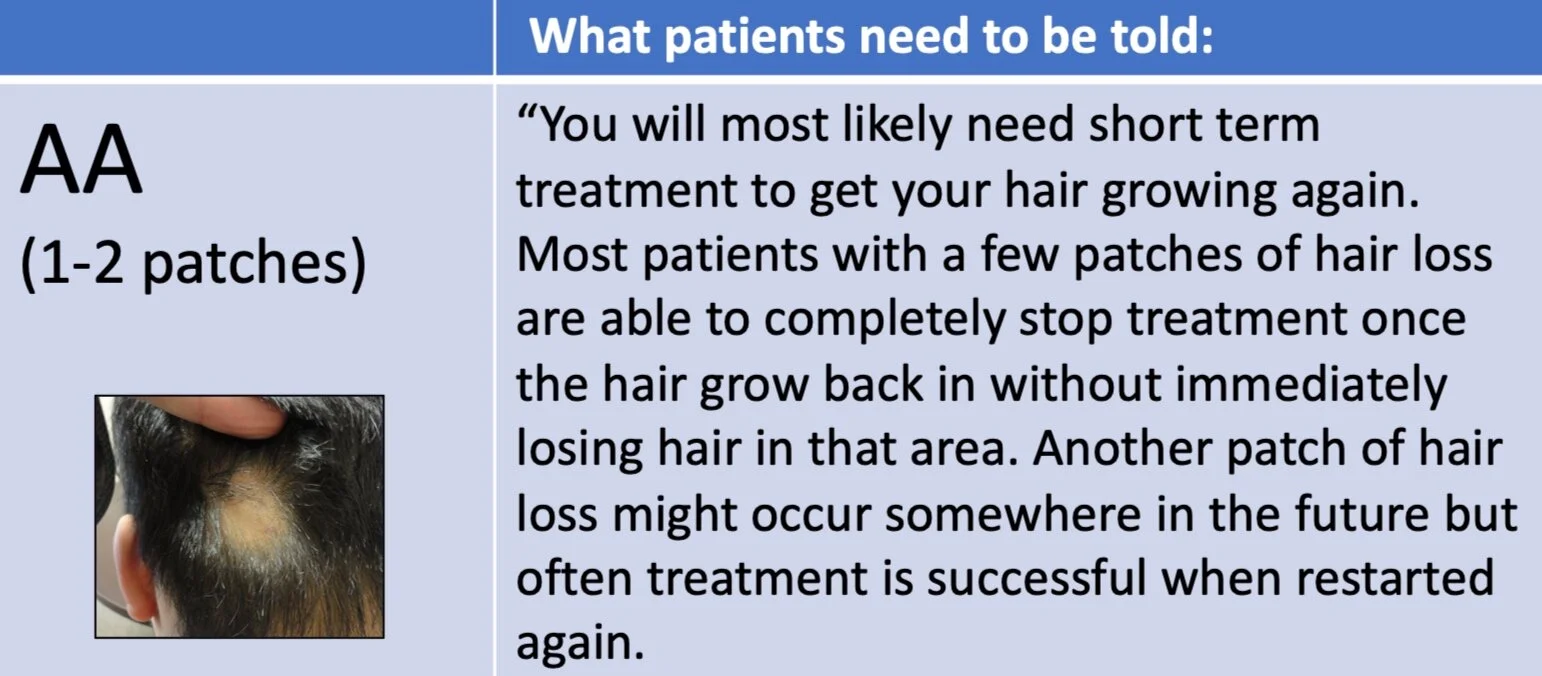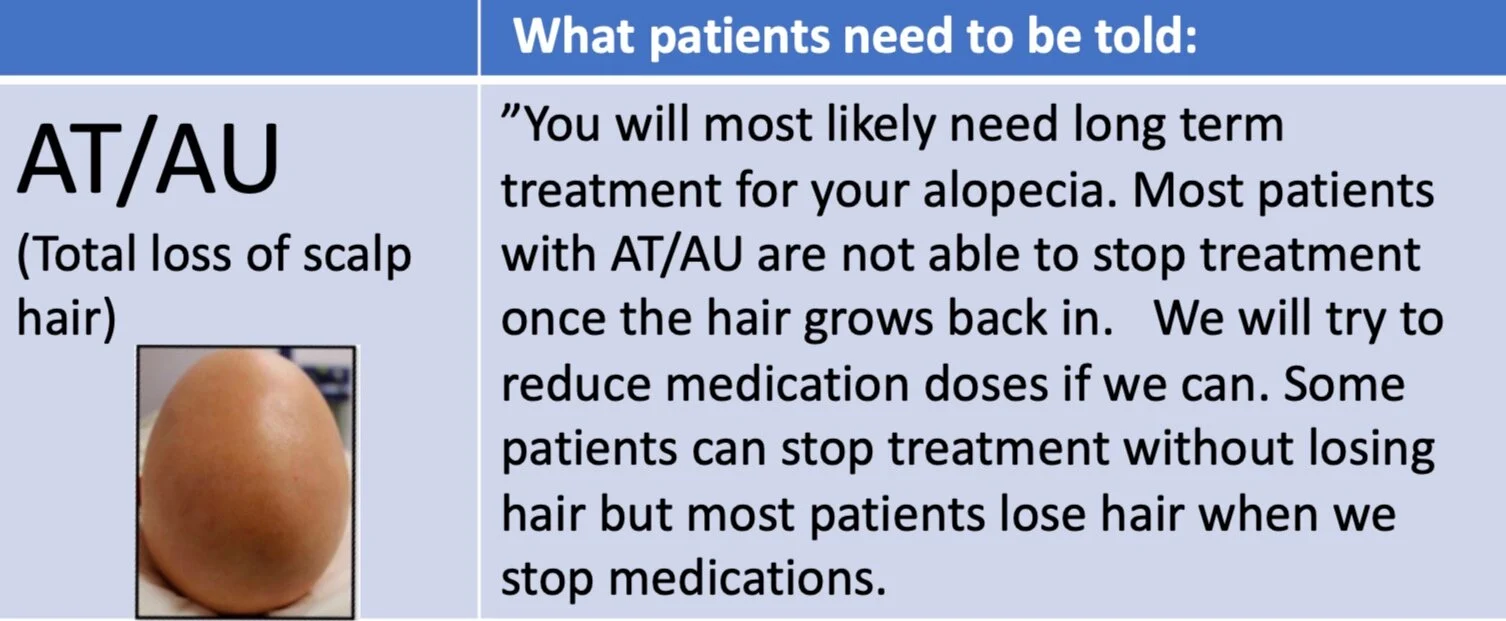Alopecia Totalis and Alopecia Universalis: How long will I be on treatment?
How long is the treatment for alopecia totalis and universalis?
Alopecia areata is an autoimmune disease that affects nearly 2 % of the world. I’m often asked by patients, as well as doctors, exactly how long patients with alopecia areata will need treatment. This question is especially relevant for patents with more advanced forms of alopecia such as alopecia totalis and alopecia universalis. How long will they need treatment? We’ll take a look together why this answer is different for different types of alopecia areata. The key point of this article is that the potential length of expected treatment must be clearly discussed with patients. Patients with advanced forms often need long term treatment for many years and many will require lifelong treatment. This is of course, until better treatments arrive.
Alopecia Totalis and Universalis: Severe Forms of AA
First, what is alopecia totalis and universalis? These are both advanced forms of alopecia areata. Alopecia totalis refers to a situation whereby the patient does not have any scalp hair, although eyebrows, eyelashes and body hair may be present to various degrees. Alopecia universalis refers to the form of alopecia areata whereby the affected individual does not have any scalp hair and does not have eyebrow, eyelash and body hair either.
The important thing to understand as we talk about alopecia totalis and universalis is that these are more severe forms of these conditions. They are very different than so called ‘patchy’ alopecia areata whereby a patient experiences several patches of hair loss. Patchy alopecia can regrow on its own and often regrows with treatment. Once hair fully regrows in patchy alopecia areeata, treatments can generally be stopped without worry that there will be an immediate loss of hair. Now of course there can be hair loss at any time in the future for any patient with alopecia areata. But chances of hair loss with the next short period is rare in alopecia areata that has grown back.
Treatment for mild AA is usually short term; Treatment for severe AA is usually long term
Treatment duration for patents with mild forms of alopecia areata is generally short term. A patient with a single patch of alopecia might use a cream or lotion for a few months or get steroid injections … but hair is likely to regrow. Once the hair regrows, treatment can be stopped without a high likelihood that the disease will come back in that area
There is no definitive answer or prediction about whether or not long term treatment will be needed, simply a scale of how likely it will be that long term treatment is needed. For patients with alopecia areata unilocularis it is highly likely that short term treatment is all that will be needed. For patents with severe alopecia areata (alopecia totalis and alopecia universalis) it is highly likely that long term treatment will be needed.
Counselling Patients with Alopecia Areata: What should they be told?
Regardless of what analogy or chart or graph or statistic one wants to use, the basic message is always the same. Alopecia areata in mild forms is more likely to only require short term treatments and alopecia areata in severe forms is more likely to require long term treatments. It must always be kept in mind that many patients with alopecia totalis and universalis will require lifelong treatment. Attempts to stop medications or reduce doses can sometimes be associated with hair loss. Delphine Anuset et al studied 26 patients with advanced alopecia areata who were treatment with methotrexate and oral steroids. About 60 % of patients had total regrowth. After stopping treatments, 73 % of these patients experienced loss of hair (relapse).
References
Delphine Anuset et al. Efficacy and Safety of Methotrexate Combined With Low- To Moderate-Dose Corticosteroids for Severe Alopecia Areata. Dermatology. 2016.
S C Gordon et al. Rebound Effect Associated With JAK Inhibitor Use in the Treatment of Alopecia Areata. J Eur Acad Dermatol Venereol. 2019 Apr.
This article was written by Dr. Jeff Donovan, a Canadian and US board certified dermatologist specializing exclusively in hair loss.




